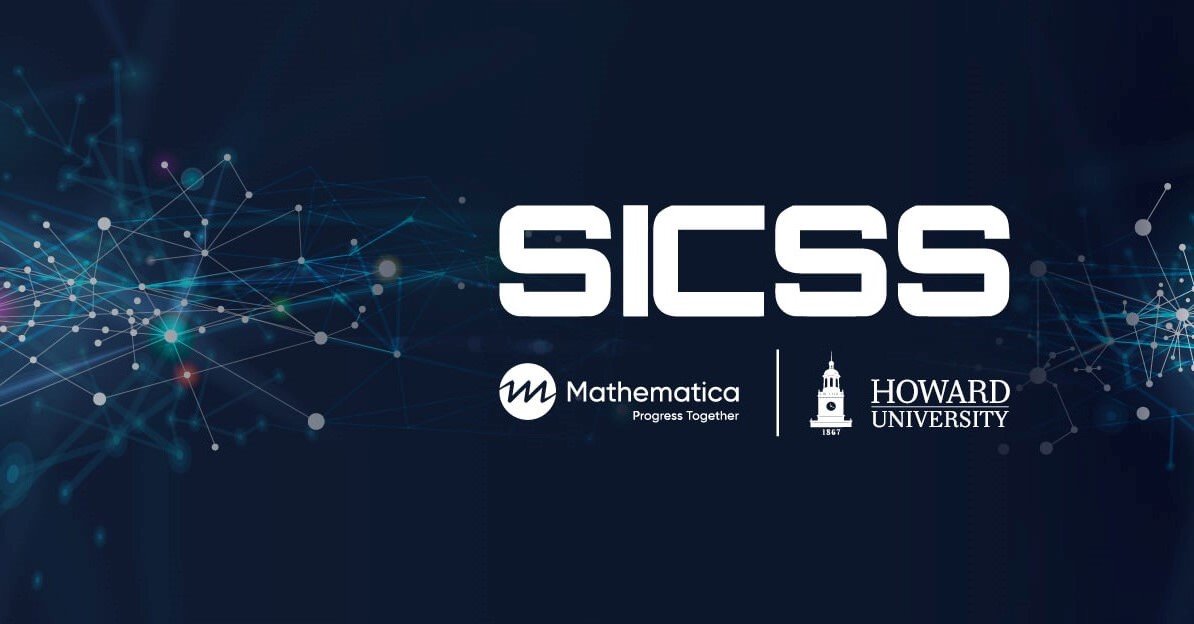Who is in my classroom and why does it matter for teaching research methods?
By Professor Helena Gillespie, University of East Anglia, UK
Dr. Gillespie is the author of the new book, Researching Equality and Social Justice. If you want to learn more, you can use the code MSPACEQ323 for a 20% discount on a purchase of the book, through September 2023.
Why identity matters
Identity has never been a more important topic, or a more controversial one. From issue of gender identity to the discourses around race relations we are finding a way to live in a society with new definitions of personal identity. In universities and colleges, student identity matters to teachers, to our regulators and to students themselves.

While this guide was designed for education students, it is relevant across disciplines!
For teachers, getting to know our students, knowing what they have in common and what makes their life experience different is of crucial importance to building good relationships in classrooms. As teachers, it is sometimes tempting to look at a group of students and hark back to our own university days, imagining the students in our classrooms are having the same experience. However, with the number of students in UK Higher education having doubled in the last 30 years and comparable growth around the world, classrooms are more diverse than before. In the UK, ‘first in family’ students are now dominant in universities. What are the implications for teaching?
In England, the regulator universities, The Office for Students identified that there are equality risks for students with particular characteristics may be less likely to get offers from some providers, especially where entry is competitive. If these measures are to make a real difference to equality of opportunity, universities urgently need to develop a shared understanding of how to create more equity in partnership with their students.
In my experience, identity is of crucial importance to students, with many, but not all students, joining universities and colleges at time when they are beginning to explore and define their adult selves in terms of sexuality, gender, race and culture, the words that are used around identity have never been so important. This is the starting point for my recently published book. In my experience of supporting students through research projects and dissertations, many of them choose to study topics related to equality and social justice, on disability and learning, on financial support for students and on race equality to name a few examples. These projects are often influenced by student’s own direct life experiences. For this reason it is perhaps not surprising that students are often motivated and curious about equality and social justice issues and the book aims to harness this motivation to enable students to create meaningful and high quality research projects on these topics.
Why understanding identity matters in research

In the book, I look at different aspects of student characteristics from socio-economic status and the myriad of ways that is defined in education, to mental health conditions and other disabilities. Supporting students to understand equality and social justice topics clearly and objectively is important to effective student research projects. In addition, helping students find, collect and use high quality evidence is key in the area of equality and social justice, for three main reasons:
For understanding theory – helping students clarify the scope and issues of their topic using literature is vital to an effective research project
For good data – both primary and secondary data collection needs to be based on clearly understood and appropriate terms
For impact – for students who research equality and social justice, they want their projects to make an impact, this means it needs to be situated within the established discourse on the topic
As teachers in universities and colleges, I believe that our primary job is to help students think, but not to make them think like us. In supporting students to understand why definitions and concepts around identity matter, we can help them feel both challenged and empowered as researchers.
If you are teaching in a university or college, it might feel like researching equality and social justice topics is difficult, especially if this is not your main academic discipline. But developing your own skills and confidence in understanding student identity and characteristics will help you improve your own teaching of these sort of topics.
If you are a student, understanding your own identity and how that relates to others is vitally important to becoming a good researcher, and this isn’t limited to autoethnographic approaches. Understanding your own ideas and by implication your bias is important to an ethical approach.
So whoever you are, however you identify, developing skills in researching equality and social justice matters.
More Methodspace Posts about Equity and Inclusion
Decolonizing research methods means rethinking how we look at participants and problems. In the digital world there are even more ways the European West exerts cultural, economic, and political control. At the same time, the digital world allows researchers to conduct studies across the distances.
Co-authors share about a topic of decolonial research, privilege, and ethics. They write this piece in two parts, narrating their understanding of the experience and how it relates to power hierarchies and researcher responsibility.
Chart research directions that take you to the roots of the problem. Learn more in this guest post from Dr. Donna Mertens.
These difficult times present challenges for researchers. Find five original posts by Robert Kozinets about using Netnography to study sensitive topics.
This year we need to honor Martin Luther King's legacy with both reflection and action! In this post, find links to lots of original source materials, including documents and recordings.
Caroline Lenette offered a keynote address at the International Creative Research Methods conference, September 2023. See the address and learn about the 2024 conference here.
Safary Wa-Mbaleka, Arceli Rosario, and Anna Cohen Miller discussed opportunities and challenges for global researchers and academic writers in this roundtable discussion.
Learn about disseminating research with an equity lens in this guest post from the CTE Research Network Equity Working Group.
Given the difficulties that emerged with the global Covid pandemic, the European Commission funded the PREPARED project. The aim of the project is to develop an ethics and integrity framework to guide researchers working to prevent and address large-scale crises. Find meeting reports, recordings, and related posts.
The Career and Technical Education (CTE) Equity Framework approach draws high-level insights from this body of work to inform equity in data analysis that can apply to groups of people who may face systemic barriers to CTE participation. Learn more in this two-part post!
The Career and Technical Education (CTE) Equity Framework approach draws high-level insights from this body of work to inform equity in data analysis that can apply to groups of people who may face systemic barriers to CTE participation. This is part 2, find the link to part 1 and previous posts about the Equity Framework.
Some of us feel that technology is everywhere, but that is not the case for everyone. Inequalities persist. What do these disparities mean for researchers?
Experienced global researchers Safary Wa-Mbaleka and Anna Cohen Miller discuss social justice and qualitative research.
In this roundtable discussion moderated by Janet Salmons, Research Community Manager for Sage Methodspace, Marc Spooner (Canada), Nicole Brown and Áine McAllister (UK), Natalia Reinoso Chavez (Colombia) and Consuelo Chapela (Mexico) discuss constraints on academic freedom and recommendations for researchers.
Why does identity matter in the methods classroom?
How to look at data collection using an Equity Framework for CTE Research, which provides principles and practices for researchers on equity questions, designs, and implications throughout the research process.
Find a multidisciplinary collection of scholarly and historical articles about Juneteenth.
The first Summer Institute in Computational Social Science held at a Historically Black College or University, returns to Howard University for its two-day pre-institute, Praxis to Power for graduate students, postdoctoral researchers, and beginning faculty who needed more time to practice computational methods.
We can’t go back and change the past, but we can choose how we move forward. Find a collection of Methodspace posts, articles, webinar recordings and interviews.
The goals for this collaborative feminist research project were to bring together scholars who had critical methodological lenses, focusing our study through a collaborative feminist methodological lens to explore and address gender-based inequities in higher education institutions. Find the open-access book and toolkit the co-authors created.
Decolonisation is not a peripheral but central concern to social research for change. Learn more from Caroline Lenette, author of Participatory Action Research: Ethics and Decolonization.
In this Methodspace interview Dr. Joel Thurston and Dr. Cesar Montalvo tell us about how data science can be used for social good, and how their program for young scholars is cultivating a next generation of data scientists.
For researchers interested in incorporating equity into their work, it all starts at the very beginning with designing the study. Learn more in this guest post!
It seems more important than ever to know how and where to access materials on women’s/gender studies, since they may not be available as course readings or in libraries. Find links to some open-access archives.
In this collection of open-access articles, researchers consider ways Critical Race Theory can be used to frame studies that look at the intersection of race and other societal, cultural, economic, and or political factors.
The Equity Working Group of the CTE Research Network (CTERN) has published a new framework for any researcher in social or education fields on using an equity lens to do their research. Find a link to The Equity Framework for CTE Research and information about a free webinar.
The new open-access Protests Against Racism Web Archive from the Library of Congress contains a selection of websites documenting protests against racism and police brutality against Black people. Also find resources about using archival data in your research.
Dr. Cindy Veldhuis discusses the need for attention to researcher safety for those who study LGBTQ+ issues.
This collection of open-access articles offers examples of creative thinking about methods selected for studies that engage Black participants.



























Read this collection of multidisciplinary articles to explore epistemological questions in Indigenous research.